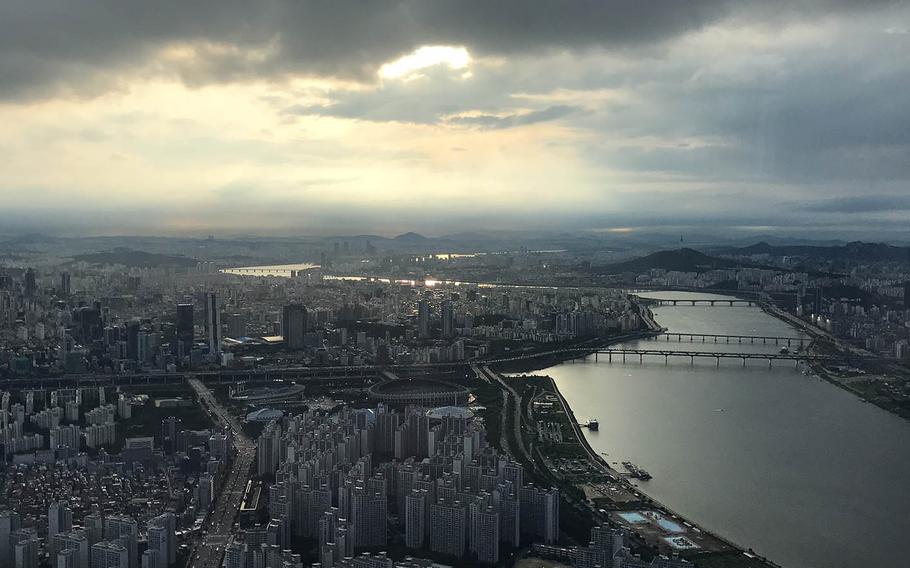
South Korea reported 166 new cases as of midnight Friday, Aug, 14, 2020, a five-month high, with most of the transmissions in Seoul and the surrounding Gyeonggi province. (Pixabay)
Stars and Stripes is making stories on the coronavirus pandemic available free of charge. See other free reports here. Sign up for our daily coronavirus newsletter here. Please support our journalism with a subscription.
SEOUL, South Korea — The U.S. military put Seoul and surrounding areas back off-limits to personnel who don’t live there starting at 6 p.m. Saturday as the number of coronavirus cases in South Korea surged to triple digits for a second day.
South Korea reported 166 new cases as of midnight Friday, a five-month high, with most of the transmissions in Seoul and the surrounding Gyeonggi province.
The new outbreak prompted U.S. Forces Korea to raise its health alert level for the capital and nearby areas, dubbed “Area II+,” less than a week after it had been lowered due to relatively low coronavirus numbers.
“This means all USFK-affiliated individuals can only travel to Area II+ for official and necessary duties. All other travel requires an exception to policy memo,” signed by a colonel or equivalent civilian supervisor, USFK spokesman Col. Lee Peters said in a video announcement.
He urged people to adhere to measures aimed at preventing the spread of the virus, including wearing masks when it’s not possible to maintain a safe distance and washing hands frequently.
The Army’s Yongsan Garrison in Seoul also restored protective measures that had been lifted, including closing all but two entry gates and resuming health checks before entry.
The number of cases began rising earlier this week after months of hovering below 50 a day, dashing hopes that South Korea’s aggressive approach to testing and tracing the virus has stemmed the pandemic within its borders.
The Korea Centers for Disease Control and Protection said 72 of the new cases were reported in Seoul and 67 in the surrounding Gyeonggi province. Many of the new infections have been linked to churches and a popular street market.
The numbers began rising earlier this week, with 103 cases reported Friday. The 166 reported on Saturday was the highest daily number since 242 new cases were reported March 11.
While the overall number of cases in South Korea, a nation of more than 51 million people, remained low compared to other countries, health authorities have consistently warned that cluster infections and imported cases threaten to reverse the progress.
South Korea has reported 15,039 cases since Jan. 20, with 305 deaths and 13,901 patients who fully recovered.
The government also tightened restrictions for the area, including closing public facilities such as libraries and museums and banning meetings of more than 50 people, according to the Yonhap News Agency. Fans also will not be allowed to attend baseball games in person for at least two weeks, less than a month after they had been allowed back into the stadiums.
Restaurants may stay open, but customers must wear masks when not eating. Business owners also will be required to digitally record visitors’ identities with barcodes.
"We are in a dangerous situation where if we cannot overcome this crisis, we might revert to a mass epidemic situation similar to what other countries around the world are facing," Prime Minister Chung Sye-kyun was quoted as saying.
The U.S. military, which has its headquarters at Camp Humphreys in the rural area of Pyeongtaek, had eased restrictions Monday, allowing many troops, family members and civilian employees to travel to Seoul for the first time in months.
Officials urged those who traveled to Seoul to start traveling out of the city by 6 p.m.
The newly restricted area includes Incheon, except for the airport, Gimpo, Goyang, Paju, Uijeongbu, Namyangju, Gwangju, Yongin and Suwon. They will be placed at Health Protection Condition Charlie, which indicates an area is experiencing sustained community transmission, until further notice, USFK said.
Bars, clubs and other establishments with adults-only entrance remained off-limits in all areas, the command said.
gamel.kim@stripes.com Twitter: @kimgamel